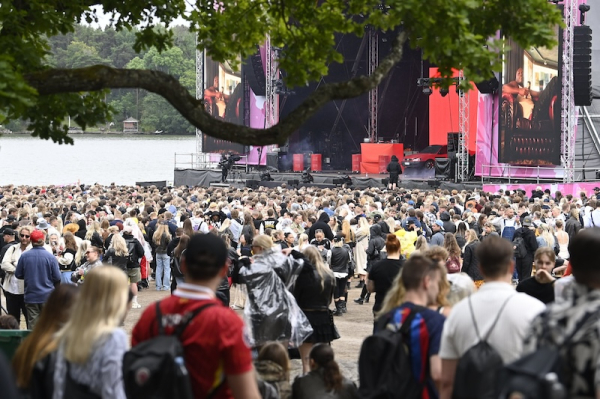
Audience at Turisti’s concert at the Ruisrock Festival in Ruissalo, Turku. Photo: Saara Peltola / Lehtikuva
- Next Article European hornet spreads north across Finland
Hotel prices in Finnish cities are rising sharply this summer as dynamic pricing systems respond to major events and local demand.
In some cases, accommodation near festivals or competitions has surged by more than €200 a night. Yle found the steepest price increases in Jyväskylä, where the Finnish World Rally Championship will take place at the end of July. Nearby hotels raised rates by over €200 compared to the same period earlier in the month.
In Kotka, where the Maritime Festival draws around 200,000 visitors, prices rose by more than €100 a night during the event. A similar jump occurred in Pori during the ongoing Pori Jazz festival.
Across other cities hosting summer events, including Turku, Tampere, Mikkeli and Savonlinna, nightly hotel prices were up by €20 to €70 during event weekends.
The price comparison focused on standard, non-discounted rates from major hotel chains including Scandic and S Group. Rates were recorded on 14 July and compared to earlier prices from 9–10 July. Price fluctuations are frequent, and the study captured a snapshot of the most recent available data.
According to Juha Beurling-Pomoell, secretary general of the Finnish Consumers’ Union, the rise in prices is linked to the widespread use of dynamic pricing models. These systems use algorithms to track customer behaviour and demand, adjusting prices in real time.
“Consumers are forced to check prices from different websites nearly simultaneously and make quick decisions because of the changing prices,” Beurling-Pomoell said.
He noted that while dynamic pricing can result in sudden cost increases, it can also work in favour of those who book early, before demand spikes.
Beurling-Pomoell encouraged travellers to contact hotels directly to ask for the lowest available price. Booking platforms and hotel websites may not always show the best deal, particularly when price adjustments are rapid.
Dynamic pricing models also respond to factors such as upcoming festivals, weather forecasts, and local availability. Algorithms adjust based on room demand, booking times, and even how the customer plans to pay, either at the time of booking or during the stay.
Yle’s review looked at pricing during a range of summer events scheduled between 19 July and 16 August. These included:
-
Pori Jazz
-
Kotka Maritime Festival
-
Rally Championship in Jyväskylä
-
Savonlinna Opera Festival
-
Kouvola East-West Finnish baseball games
-
Dinosaurock in Mikkeli
-
Turku’s Down by the Laituri music festival
-
Tampere’s Blockfest
All hotels surveyed still had rooms available at the time of comparison.
In the case of Jyväskylä, some hotels that typically charged under €130 per night were asking more than €330 during the rally event. In Kotka and Pori, rates rose from around €100 to over €200 at peak demand.
The final cost also depends on extras such as breakfast, cancellation terms and whether the guest books directly through the hotel or via a third-party site like booking.com.
Hotel managers say the pricing strategy helps balance demand and occupancy, ensuring rooms are available when needed. But for travellers, the system means prices can shift dramatically depending on when and how they book.
HT
- Next Article European hornet spreads north across Finland
Source: www.helsinkitimes.fi
